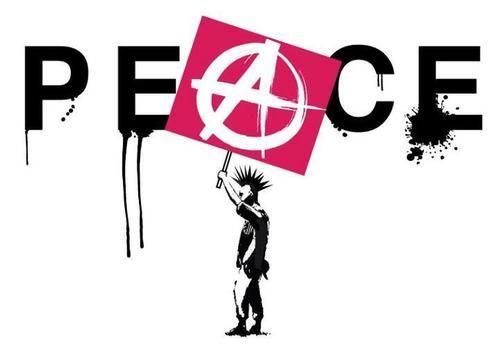Most people, almost all I know, are intuitively against war. Most will justify the defence of their country but never offensive measures. A significant amount will then say that under certain conditions military force may be used abroad to reach (loosely defined) humanitarian goals.
The latter idea creates a lot of open questions. Is it actually moral to be a pacifist? Don't we have a duty to help others? What are the conditions for this help?
The state uses this confusion to legitimate wars in their own interest. We have seen all possible angles in the past decades:
The "humanitarian" intervention to help people get rid or an unwanted leader, possibly using chemical weapons on the own population. Only that when the leader is gone, the country is in ruins and a corrupt puppet is installed to replace one corrupt authority with another.
"Defending our freedom abroad". Other countries might plan to attack us and we need to use a preemptive "defensive" attack, an philosophical oxymoron. Usually this applies to expected future terrorist threats or the development of weapons of mass destruction.
"Responding to an attack on us". Some foreign terrorists have attacked our country and we need to respond not with private law, but with military intervention. Even though these terrorists are not government actors; or it might even be a false flag operation.
Using these strategies the state is trying to fool us, creating a false defensive scenario, or the even more bullshit idea of vaguely defined humanitarian goals.
But how can the question under which conditions military action is allowed be resolved in a logical manner that cannot be corrupted by state propaganda? The answer is again lies in the non-aggression principle.

Every individual is allowed to act in self-defence. This automatically states that offensive wars are immoral, while defensive protection of local communities is morally justified. Exactly what people tend to naturally think. When it comes to foreign intervention, the scenario is not different to a situation where you see violence against a stranger. You are allowed to help, but this is your personal choice. But what is crucial is that your help is coordinated with the victim. You do not enter that conflict as a third party, but offer your support to the perceived victim.
This means that in the case of a tyrannical leader the moral action is to support the people. Best way to do that is to send them money. With crypto we could for example airdrop tokens to anyone in the country. This provides them financial aid that they can use as they see fit, for example to over-through the corrupt government themselves if the so desire. The foreigners in this way get no power, and thus nothing can be abused.
A more radical idea is to go to the country yourself and offer help to the victims, civil and military. But in any case, the help should be based on the sum of individual actions, committing their own resources, and not a state channeled foreign intervention.
Committing your own resources guarantees that you check that (at least by your standards) the conditions for a moral foreign intervention are fulfilled. Doing it yourself means that you get informed what actually happens and that reduces pointless (uncontrolled state-authorised) violence massively. Being decentralised makes it hard to corrupt the intervention by foreign interests.
To sum it up, pacifism is the moral stance. The state cannot intervene in foreign conflicts and claim to have a moral justification. No matter any humanitarian reasons they might find. Only private persons can, if the so want, commit their own resources to conflicts. And in that case it does not matter if this is a local, global, native or foreign conflict.